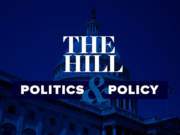2016 was a surprising year in politics. One surprise that hasn’t received much attention yet is the minimal role played by “money in politics” in the presidential election. One of the best-funded candidates in history, Hillary Clinton, lost to an opponent who raised less than half of what she did. Not just that, but independent supporters of Clinton outspent those advocating for Trump nearly 3-to-1.
How did this happen? Part of the explanation is that money’s role in elections is overstated. The list of candidates whose funding advantage failed to translate into votes on Election Day is long, including Eric Cantor, Linda McMahon, David Trone, and many more. Money can’t fool voters into supporting someone they don’t want to support.
But money is certainly an important part of campaigning. Campaign spending helps candidates get their message out and introduce themselves to voters. Money pays for staff, advertising, campaign swag, office space, travel and rallies.
Donald Trump’s unique advantages as a candidate reduced his need for fundraising. As a wealthy businessman, Trump was able to self-fund a significant portion of his campaign early on. More importantly, Trump’s celebrity status and mastery of the media gave him a platform seemingly whenever he wanted one. While other candidates were buying ad time, Trump rallies were often broadcast in real time by CNN, Fox News, and other cable news networks.
This spending does not show up in the statistics, but it can be counted. The New York Times reported that Trump’s “free” media coverage was worth $2 billion in the primaries alone. In fact, every candidate received more value in “free” media than what they had spent. In the general election, both Clinton and Trump received hundreds of millions of dollars’ worth of media coverage every month. One could fairly argue that both the primary and general elections were competitive only because other candidates could purchase media to compete with Trump. That’s something for lawmakers and regulators to keep in mind the next time a politician or activist proposes limiting campaign contributions as a means of “getting money out of politics.”
Outside of the presidential election, campaign spending in 2016 was fairly normal – super PACs and “dark money” get the headlines, but candidates and parties make up the vast majority of spending. That may surprise consumers of frequently inaccurate media reporting on “money in politics,” but it’s actually business as usual.
The Federal Election Commission has not yet released final numbers for the 2016 cycle, but the most current data suggest that candidates and parties accounted for the largest share of total spending by far. Super PACs spent $1.1 billion, about one-fifth of the total spent by candidates and parties. So-called “dark money” – spending by nonprofit groups that are not required to report their donors’ names and addresses to the government – totaled $182 million, approximately 2.5% of total spending in the 2016 cycle. (This is in line with previous election cycles; “dark money” was 4.3% of total spending in 2012 and 3.3% in 2014.)
What is the takeaway from this for campaign finance regulation? That money is important, but not too important; that candidates’ myriad advantages and disadvantages cannot be fully accounted for in the law; and that concerns about 2010’s Citizens United decision (that independent spending would overwhelm the voices of candidates and that transparency would be irreparably harmed) were misplaced.
Deregulating campaign finance after the 2016 cycle should become less controversial. (Although the pro-regulation crowd and their media cheerleaders will no doubt work hard to prevent that.) Hillary Clinton’s massive fundraising operation showed that regulations don’t prevent prominent politicians from building a “war chest” to scare off challengers. Donald Trump’s victory, despite comparatively little spending, showed how public figures can leverage their celebrity to make campaign finance restrictions irrelevant. Meanwhile, new voices without the benefit of fame are stifled by the same laws supposedly preventing the wealthy from gaining political advantage.
What is left is to liberalize the system so that everyone – not just the Clintons and Trumps of the world – can thrive in politics.
This post originally ran in The Federalist Society on January 17th 2017.














